Signs of the times: Messages that popped up across greater Seattle that convey life in lockdown

The coronavirus pandemic has led to a shift in the language on signs, marquees and message boards throughout the Seattle area.
Movie theaters replaced showtimes with words of reassurance, churches began advertising online services, and teachers expressed their love for their students in signs taped to classroom windows.
The shift was amplified by the protests for racial justice, which began in late May. RadioActive’s Paul Kiefer scoured the greater Seattle area in search of these signs.
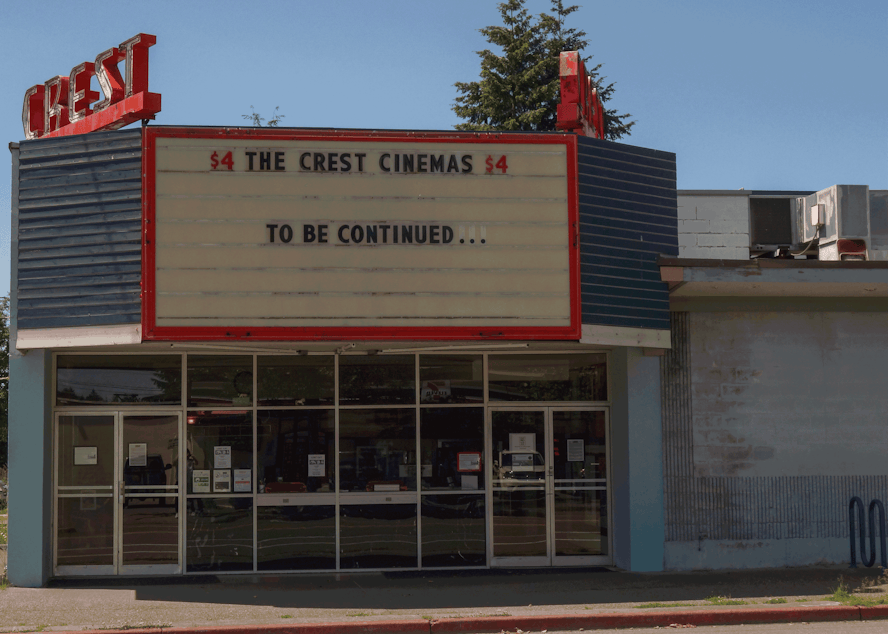
(Above) The Crest Cinema in Shoreline closed its doors on March 17 after briefly attempting to operate at reduced capacity. The small theater is part of the Landmark Theaters group, which owns venues in more than two dozen cities around the country. Thus far, the theater's management have not announced any staff layoffs.
The 101-year-old Admiral Theater in West Seattle likewise closed in mid-March. The Admiral is one of eight small theaters across the Puget Sound region owned by Far Away Entertainment, which has announced that it will begin reopening its venues at reduced capacity during stage three of reopening.
The marquee on the Uptown Theater in Lower Queen Anne directs customers to follow The Seattle International Film Festival through an online streaming platform. SIFF, for which the Uptown is one of three venues, was cancelled for the first time since the festival's debut in 1976.
Sponsored
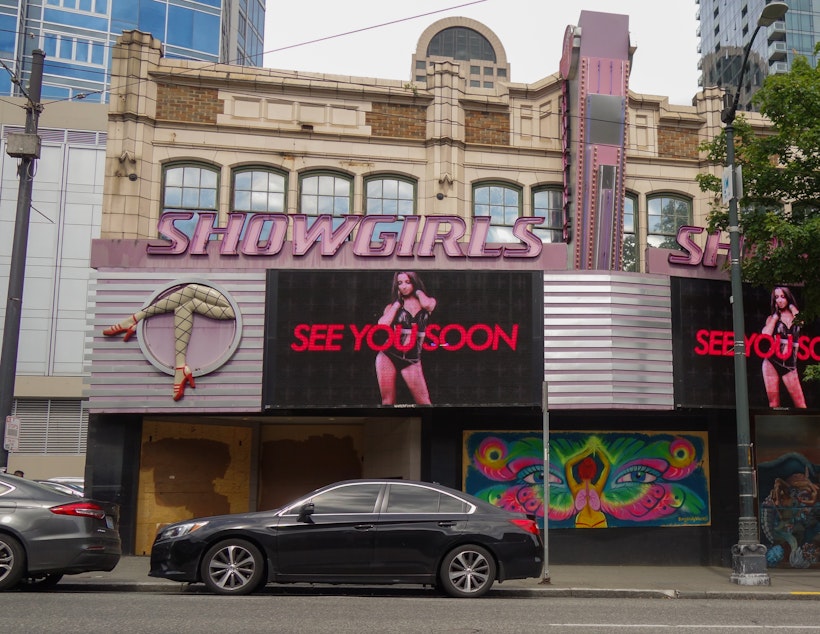
(Above) In April, a group of strip club owners from around the country filed a lawsuit against the Small Business Administration after they were denied federal small business emergency loans because of a policy prohibiting lending to businesses that present "performances of a prurient sexual nature."
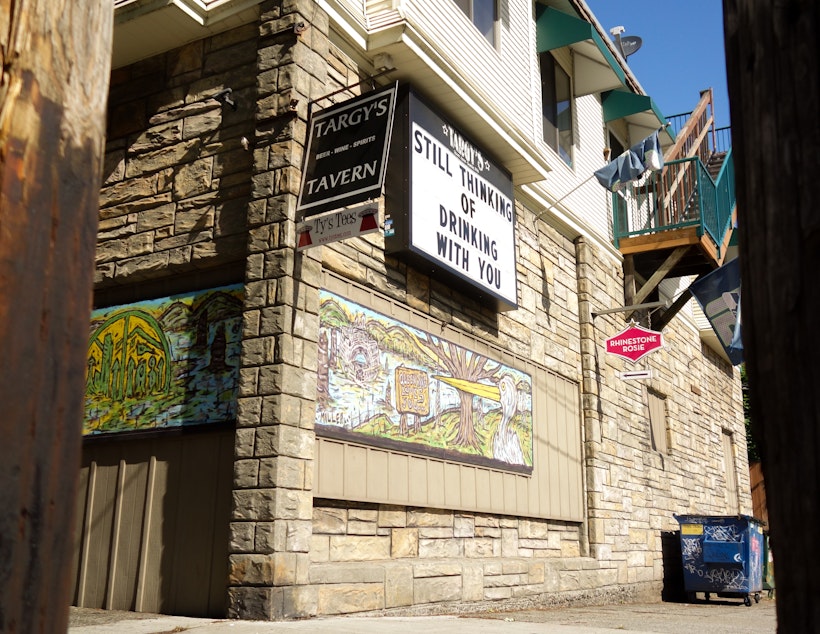
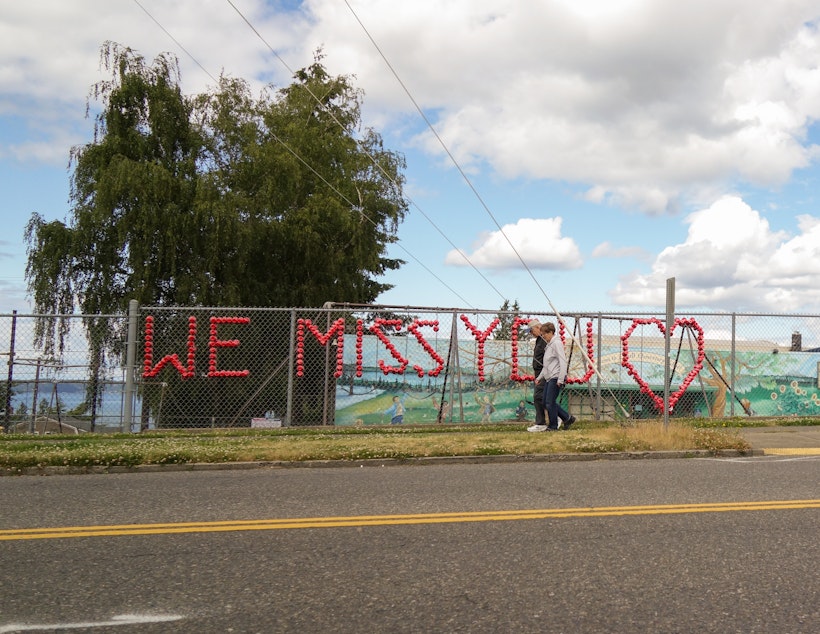
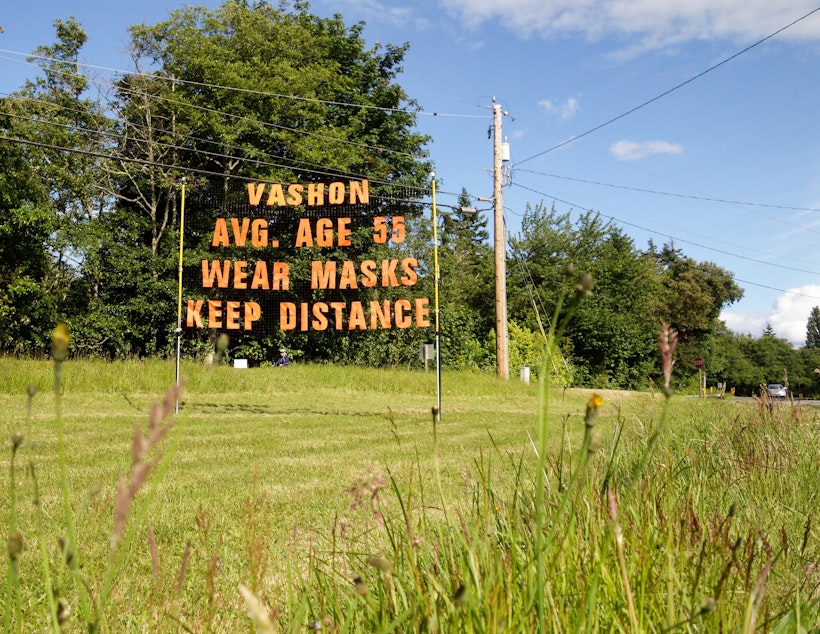
Sponsored
(Above) Vashon Island saw three new cases in the first week of July: nearly half of the total cases reported on the island since the beginning of the outbreak.
The island's 10,000 residents are an hour and a half away from the nearest emergency room, leaving the community especially vulnerable. A team of volunteers are operating a testing site at a historic home on the island in the absence of an acute care facility.
Vashon is an unincorporated rural community in King County, where the first rash of coronavirus cases in the United States were documented.


Sponsored
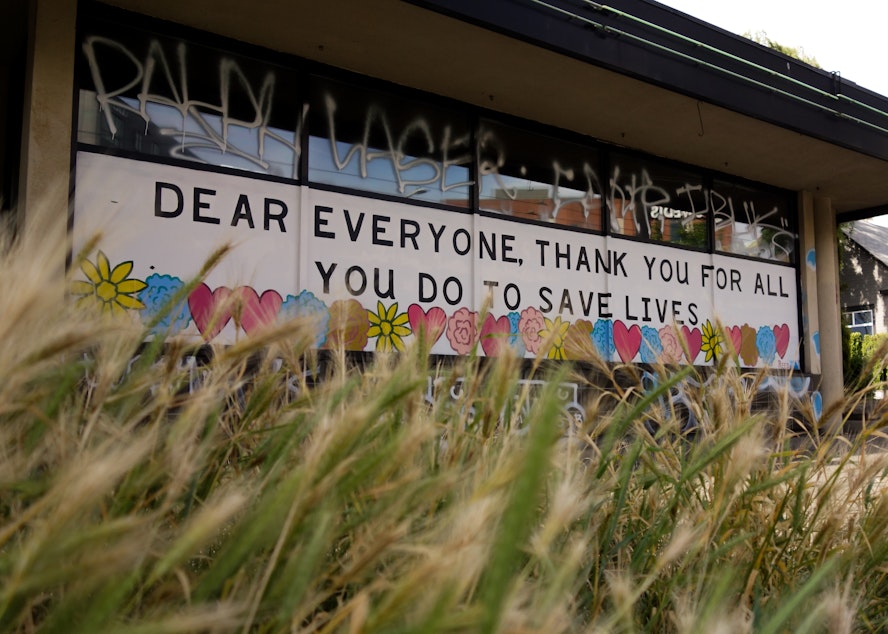
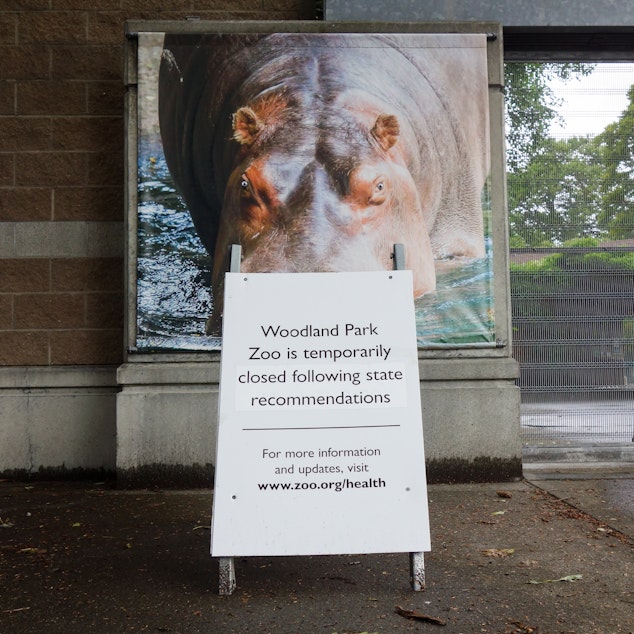
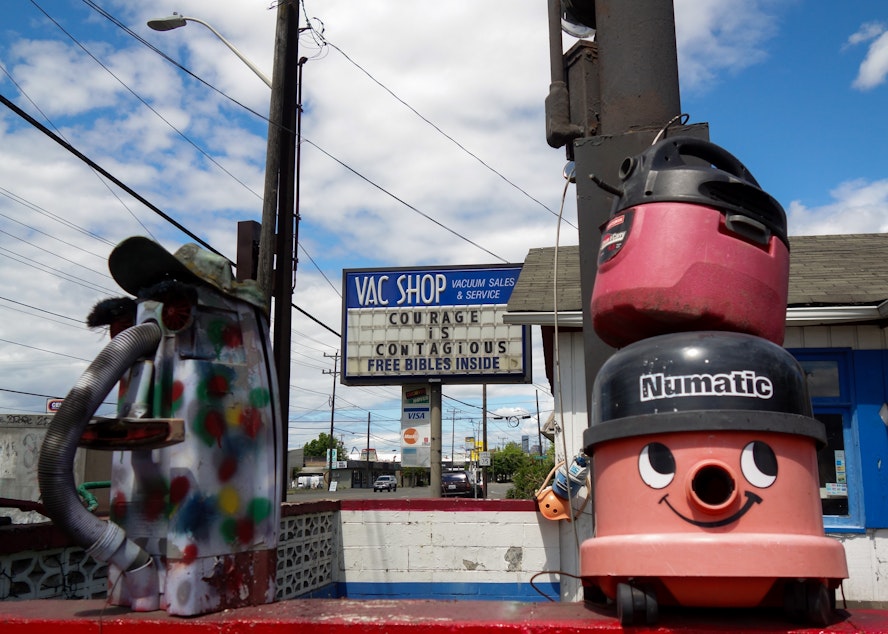
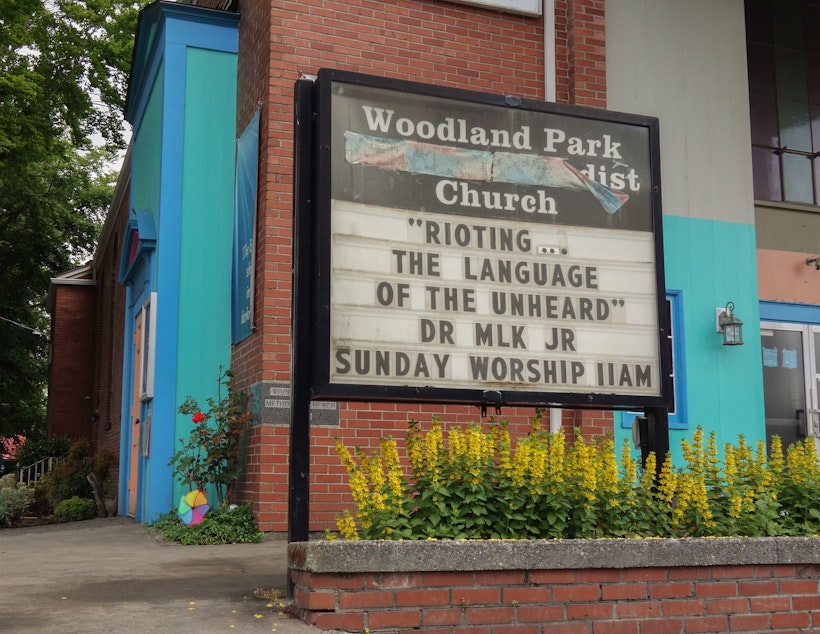
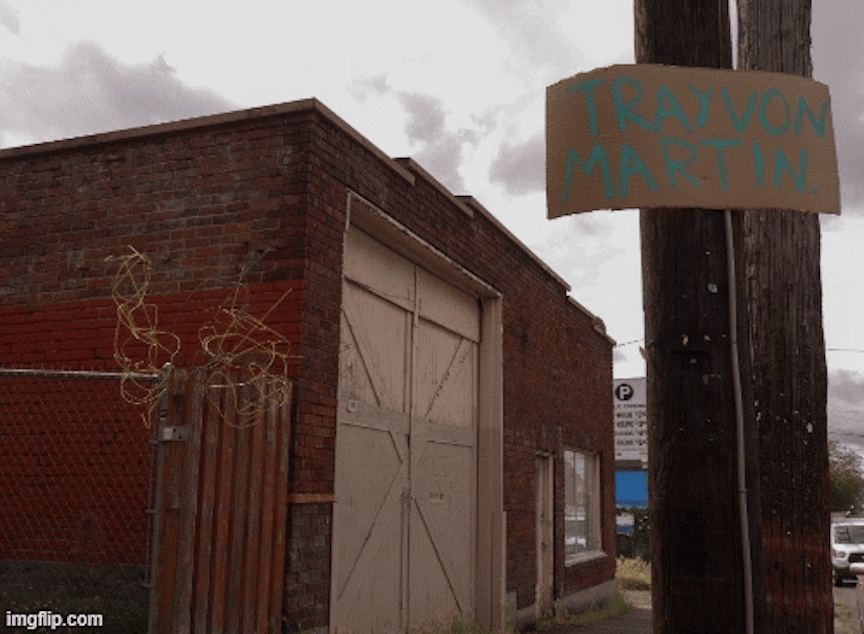
Sponsored

(Above) The June 12 silent march, organized by Black Lives Matter Seattle-King County, was among the largest demonstrations against police violence and systemic racism to take place in Seattle this year. The silence served two purposes: as a display of respect to Black people killed by police and as a way to minimize the spread of the Covid-19 virus.
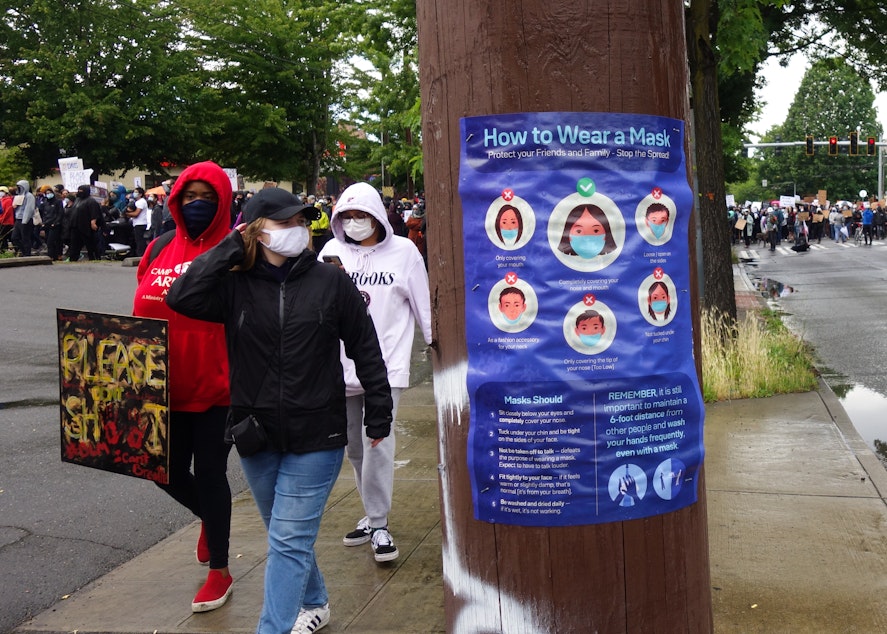

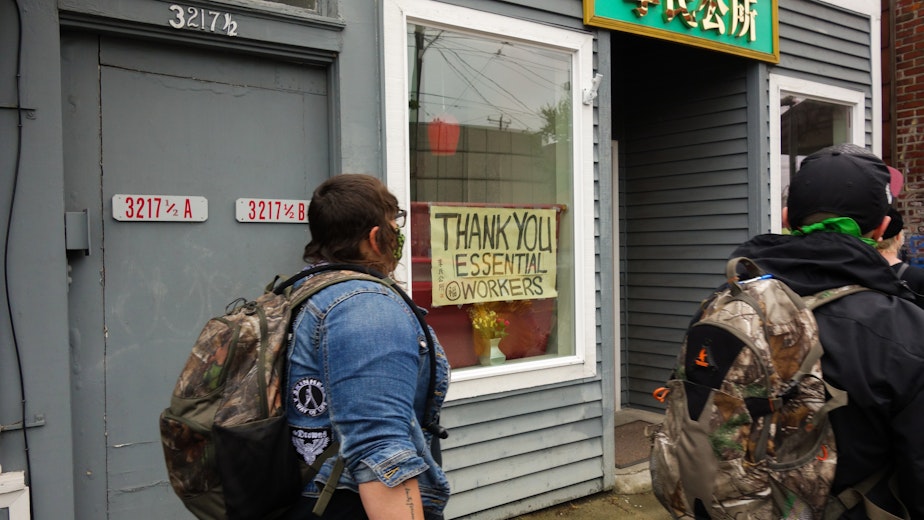
Sponsored
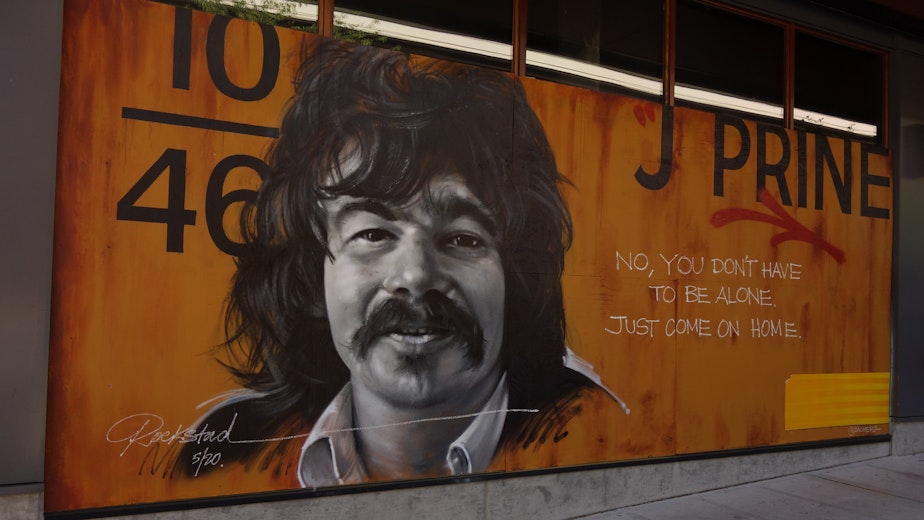
This photo essay was created by advanced participants of KUOW's RadioActive program for young people, with production support from Lila Lakehart. Edited by Isolde Raftery.
Find RadioActive on Facebook, Twitter, TikTok and Instagram, and on the RadioActive podcast.
Support for KUOW's RadioActive comes from the Bill & Melinda Gates Foundation Discovery Center.
